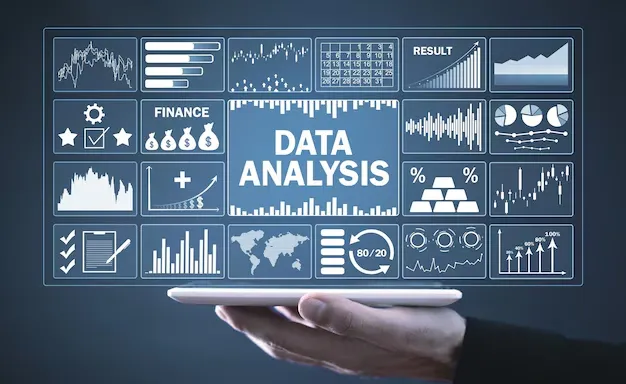The Role of Big Data in Shaping Business Decisions
Updated: 9 July 2025, 4:02 pm IST
This is the digital age where you would be hard-pressed to find anyone not using a smart device. Thanks to the immense volume of people using such devices there is also an unprecedented surge in the amount of data generated from such activities.
Now, data is an essential tool – perhaps the most crucial one in this day and age – for business as far as making decisive decisions is concerned. If as a business you are not using data to make those strategic decisions you can kiss your existence goodbye sooner rather than later.
In this blog, we will be looking at the importance of big data analytics when it comes to organizations shaping business strategies for continued growth and success.
Get Complete Details From Expert
What Is Big Data Analytics?

Big data can be defined as huge amounts of data that can either be structured, unstructured, or semi-structured. It can emanate from various sources with the most prominent ones being social media, the internet, and mobile devices.
Big data analytics can be defined as the process whereby certain methods and tools are used for collecting, analyzing, and processing big data so that trends and patterns can be identified from the same.
Techniques and tools of big data play a major role in processing data and interpreting it by letting users clean, analyze, transform, and visualize raw data so that they can identify patterns, extract meaningful insights, and make informed decisions based on the information that they get from such data sets.
Importance of Big Data Analytics in Business

1. Informed Decision-Making:
Big data analytics helps companies leverage the latest analytics tools so that they can analyze real-time and historical data to gain valuable insights that help them make the best data-driven decisions.
2. Understanding Market Trends:
Big data offers valuable market intelligence to businesses by helping them analyze market trends, competitor activities, and consumer behavior.
3. Operational Efficiency:
With the help of big data, companies find it easier to optimize their processes of operation. Businesses can analyze vast datasets and find out inefficiencies which lets them streamline workflows and become operationally more efficient overall.
4. Competitive Advantage:
Since big data allows companies to analyze what their competitors are doing they get a fair understanding of what they may be doing better than them or not. This provides them with a clear direction to perform their regular activities and take the organization ahead – they know whether they are succeeding or not.
Key Applications of Big Data in Shaping Business Decisions

1. Customer Insights and Personalization:
When it comes to the importance of big data analytics it perhaps does not get much bigger than this for sure! Big data helps companies analyze and understand their consumers’ preferences and needs and tailor their products and services accordingly.
2. Risk Management:
Companies also use big data to identify patterns and anomalies that might indicate fraudulent activities being perpetrated against them and other similar risks. They analyze and monitor data in real time which helps them strengthen their security measures to mitigate risks proactively.
3. Supply Chain Optimization:
Companies have to deal with huge amounts of data as part of their supply chain operations. With big data companies can optimize their supply chains by predicting demands, improving visibility across the overall supply chain, and identifying bottlenecks. This reduces their costs and improves their inventory management as well.
4. Financial Decision-Making:
Companies nowadays are also using big data to forecast, budget, and make investment strategies by leveraging historical data that helps them identify patterns, potential risks, and trends. This lets them make more accurate predictions about how they will perform financially in the future.
Challenges in Adopting Big Data Analytics

1. Data Privacy and Security:
The biggest issue with businesses adopting big data analytics is regarding data security and privacy. The focal points in this particular context are the potential for unauthorized access, misuse, and disclosure of private information. This can lead to serious issues such as the following:
- identity theft
- legal repercussions
- financial fraud
- privacy breaches
- reputational damage
2. Skill Gaps:
In India, the need for skilled professionals in big data analytics is significant because of the rapid growth of the market for data analysis in different sectors. There is thus a huge demand for individuals who are experts at interpreting and managing huge datasets for informing business decisions. This is where online programs can provide students with the expertise that they need to flourish in this particular industry.
3. Integration of Data Sources:
When you try to combine data from various sources you face major challenges such as the following:
- inconsistent data formats
- different definitions for the same data points
- potential for duplicate records
- variations in data quality across sources
- requirement for significant data cleaning and transformation before integration
All these tasks can take up a lot of time and be so complex especially when they have to be managed effectively.
Click here to read this blog:- How to Use Data Analytics for Business
How Online Programs Can Help Indian Students Master Big Data Analytics

Data analytics is immensely relevant in the entire global business landscape including India because it provides companies with the tools needed to make data-driven decisions, understand customer behavior in greater depth, and optimize operations. It helps them identify fresh opportunities and become more profitable by leveraging big data.
Amity Online offers an array of data analytics courses such as an online BCA (Bachelor of Computer Applications) with Specialization in Data Analytics, a BBA (Bachelor of Business Administration) with Specialization in Data Analytics, and a Big Data and Data Analytics course. These programs teach you all you need and want to know to flourish in the industry such as data management, real-world applications, and analytics tools, to name a few.
Right now, there are plenty of job opportunities in the data analytics sector for qualified professionals with the most prominent positions being the following:
- Data Analyst
- Data Consultant
- Marketing Analyst
- Data Engineer
- Operations Analyst
- Financial Data Analyst
Following are the sectors with the maximum jobs in these professions:
- banking sector
- healthcare industries including pharmaceuticals
- government agencies
- transportation
- education
Salaries in these professions can go up to Rs 856,600 lakhs per annum as well.
The Future of Big Data Analytics

With the emergence of more technologies and trends in domains such as AI (Artificial Intelligence), ML (Machine Learning), and predictive analytics it is expected that the importance of big data analytics will only be heightened further. Following are going to be the most prominent trends in this case:
- generative AI such as large language models and diffusion models
- explainable AI
- edge computing
- AutoML (automated ML)
- multi-modal ML
- few-shot learning
- responsible AI practices
- integration of quantum computing
- application of AI in domains such as finance and healthcare
There is a significantly growing demand for data analytics professionals in different industries such as e-commerce, healthcare, technology, retail, and finance where big data analytics is important.
Take the next step in your career ?
Conclusion
Thus, as is evident from the discussion above, big data analytics does play an extremely crucial role in shaping business decisions. In case you are reading this blog and looking to make it big in this profession you must explore online programs on big data analytics.
These courses can be your perfect first steps to learning and getting trained in all that you need to forge a successful career in this regard.
Check Out Our Top Online Degree Programs
Explore similar programmes
frequently asked questions
What is Big Data, and why is it important for business decisions?
+Big data is huge volumes of data that can either be structured, semi-structured, or unstructured. Businesses use such data to identify patterns and trends to make informed and strategic decisions.
How does Big Data impact decision-making in businesses?
+Companies use big data for all aspects of their business so that they can take appropriate measures to get better and keep growing in said areas. For example, they use such data to understand what their customers prefer and tailor their products likewise.
What are some common sources of Big Data used in businesses?
+Big data can emanate from a variety of sources. However, the most prominent members of this particular fraternity are social media, the internet, and mobile devices.
How can Big Data help improve customer experience?
+Big data can help companies improve customer experience by helping them analyze what they prefer in their products and services, what they need from them, and why they take certain actions regarding such phenomena.
What tools and technologies are commonly used to analyze Big Data for business decisions?
+Following are the most prominent tools and technologies used in big data analytics for business decisions: ~ Apache Hadoop ~ Apache Spark ~ data visualization tools such as Tableau ~ BI (business intelligence) platforms ~ data integration tools
Can small businesses benefit from Big Data, or is it only for large corporations?
+Small businesses can most definitely benefit by using big data analytics just as large corporations can. Such practices help them gain valuable insights into the likes of customer behavior, operational efficiencies, and market trends.
How does Big Data support predictive analytics in business?
+Big data helps companies analyze performance metrics and sensor data, and this is how it helps them predict when their equipment and machines are likely to fail. This lets them maintain them proactively, reduce downtime, and extend their lifespan.

